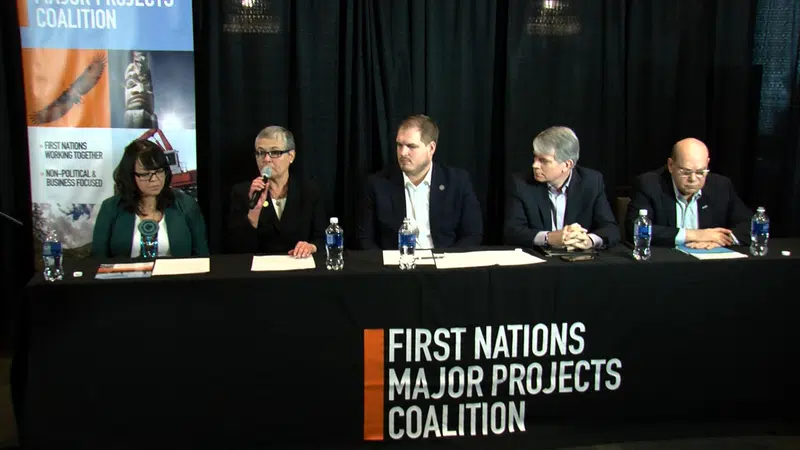
Revenue Sharing Framework sought
PRINCE GEORGE – At the conclusion of meetings here in Prince George, the First Nations Major Projects Coalition has set out plans to pursue a National Benefit Sharing Framework for major projects.
“There’s been many times where First Nations and a lot of our members have lost out on opportunities for projects that could bring real revenue into our communities,” explains Chief Sharleen Gale, Chair of the Coalition. She says the inability to access capital to be part of equity ownership on projects has been one of the greatest barriers to First Nations taking advantage of projects on their territories. One example was cited by Chief of the Chesslatta Carrier First Nation, Chief Corinna Leween.
“Access to capital necessary to invest is a huge problem. Through the summer and fall of 2019, Cheslatta participated in the commercial auction to purchase a portion of the 65% equity that was for sale by TC Energy in the Coastal GasLink liquid natural gas pipeline project,” explains Chief Leween. “Cheslatta was squeezed out of this opportunity because the cost of capital available to First Nations in the commercial markets was uncompetitive.”
The framework sets out the steps for achieving a successful revenue sharing: 1. Leverage available tools within the federal fiscal framework to establish a program designed to support Indigenous groups with access to capital, 2. Ensure maximum flexibility of those tools and programs to be able to support Indigenous groups with ownership objective over a wide variety of project dynamics and asset classes, 3. Develop and sustain an Indigenous major projects fund to support Indigenous communities with professional advice and counsel necessary to undertake independent due diligence on projects, 4. Engage with Indigenous Nations and Indigenous organizations on the development of qualifying criteria to define the size and scale of major projects and determine how the national benefits sharing framework would support Indigenous involvement in those projects, 5. Engage with Indigenous Nations and Indigenous organizations who have direct experience participating in the commercial aspects of major project development on the design of the national benefits sharing framework, 6. Establish joint-engagement and collaboration with industry and institutional sectors to support First Nations equity ownership across all sectors in the context of Indigenous rights and reconciliation, 7. Work with First Nations to design the appropriate mechanism that ensures benefits flow to community-level priorities, and 8. Ensure that benefits are established in a setting that confirms a rigorous and robust environmental review process that adheres to standards adopted by First Nations communities.
